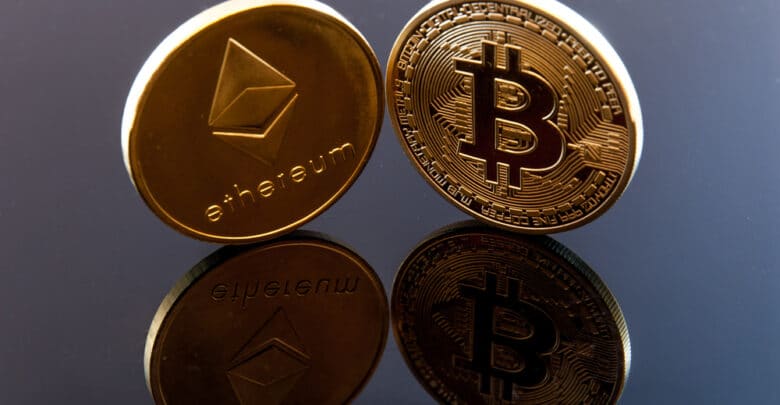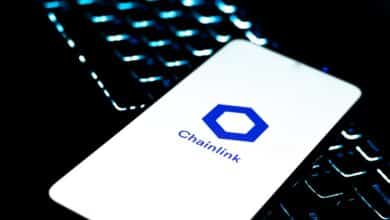How to Keep Your Cryptocurrency Secure

Introduction
Anyone who uses the internet and social media platforms have heard about cryptocurrencies. There are many financial success stories making rounds online that revolve around people who invested in these digital tokens. However, despite the great monetary incentives, a lot of netizens chose to stay away from the cryptocurrency space due to the fears around lack of security and control over their cryptocurrency reserves.
It is important to understand that the people who can make a good living out of investing in cryptocurrencies take their time to research and understand the technology first. Anyone with a little time on their hands can learn ways to secure their cryptocurrency transactions at every stage and ensure that they have complete control over their digital assets. If you are someone who is planning to invest in cryptocurrencies and wish to understand how to secure your crypto reserves, this article is for you.
What is Cryptocurrency?
Unlike paper money that a person can physically hold and exchange, cryptocurrencies are not tangible. Cryptocurrencies are a monetary product of blockchain technology that allows a global network of people to record financial transactions in the form of a digital ledger. The benefit of blockchain and cryptocurrencies is that they do not require a centralized enterprise to monitor or supervise them.
Since cryptocurrencies are non-tangible, they are present in the form of encrypted code. It is not possible to take a cryptocurrency out and place it in a box or a bank account like paper money. Therefore, investors need to make an online account first to trade and hold cryptocurrencies. Cryptocurrencies are like a data stream that records a copy of your crypto transaction that cannot be changed or altered.
How to Secure Cryptocurrencies?
An investor needs to acquire and dispense cryptocurrencies at several points to make a profit from them. It is best to take a look at the complete life cycle of a cryptocurrency and ensure that it is secure at every single stage.
- Buying and Selling
The first step to starting crypto trading is to make the first purchase. Several cryptocurrency exchanges allow people to purchase cryptocurrencies. Cryptocurrency exchanges are like stock market platforms that are specified for digital tokens. These platforms list miscellaneous cryptocurrencies and allow a buyer to choose from several options. The most famous cryptocurrency exchange platforms are Coinbase, Binance, Crypto.com, Gemini, and BitMart, according to Investopedia.com.
You can also sell cryptocurrencies using the same platforms. Before selecting any cryptocurrency exchange, it is best to research, read reviews, and conduct a financial audit to ensure that it is a secure and reliable market. Depending on their functionalities and operating mechanisms, there are the following types of cryptocurrency exchanges:
Centralized Cryptocurrency Exchanges
A Centralized cryptocurrency exchange is registered with a government financial regulator. Several countries around the world do not allow a cryptocurrency exchange without acquiring a permit or certification from the state. Many investors prefer to use regulated cryptocurrency exchanges such as Coinbase and Binance as their financial security is ensured by the state regulators.
Security on Regulated Cryptocurrency exchanges
Government regulators make security checks such as KYC and AML necessary for regulated cryptocurrency exchanges. KYC stands for Know Your Customer and allows the crypto exchange to store the details of every investor on their platforms like active mobile number, email address, residential address, and real name. This discourages threat actors from joining the platform under misleading pretenses.
AML stands for anti-money laundering protection that discourages threat actors from using any crypto exchange for illegal crypto transactions. Most cryptocurrency exchanges also provide custodial wallets that allow the investors to hold their cryptocurrency reserves in them. It is important to remember and secure the seed phrase, password, or any other type of encryption key that comes with a crypto wallet to make sure that your funds remain secure.
Decentralized Cryptocurrency Exchanges
A DEX or decentralized crypto exchange is a platform that runs without the supervision of a private or government regulator. To secure your funds on a DEX, you should conduct a financial and technical audit of the project first. Reading reviews from consumers online or contacting a reliable financial auditing firm or crypto broker to assist you. It is best to stay away from DEXs that show low transaction volume and offer a limited amount of liquidity.
- Peer-to-Peer Networks
Peer-to-Peer or P2P networks are platforms that allow traders to conduct cryptocurrency transactions with each other directly. To ensure that you are not conducting a deal with any scammers, use P2P networks that make KYC verification mandatory for both buyers and sellers. Another way to secure transactions on P2P is escrow accounts that verify a financial contract on behalf of both parties for every sale/purchase contract.
- Bank Accounts
Some banks around the world allow users to store their cryptocurrency holdings alongside their fiat currency accounts. However, many people don’t like to place their reserves with banks as it contradicts the financial privacy ideology of blockchain. Banks typically use third-party custodial service providers to offer crypto storage options. For accredited crypto holders, banks also offer financial insurance.
- Storing
Between buying and selling cryptocurrencies, every investor needs to have a secure space where they can place their crypto tokens. Depending on the type of cryptocurrency and the nature of trading, storage options differ.
How to Secure your Cryptocurrency Accounts?
No matter where a person purchases their cryptocurrency reserves, they cannot buy, sell, or store them without an online account. Anyone who ensures the safety of their crypto account can warrant the security of their cryptocurrency reserves. Here are some methods to do the same:
- Research
The biggest reason that people lose crypto coins to scams and hack attempts is their lack of knowledge. Threat actors actively seek investors who are new to the market or do not have a lot of experience since it is easier to confuse and target them. Therefore, it is very important to educate yourself and research the inner workings of centralized, DEX, P2P, or crypto storage services before using them. Customer reviews, social media presence, community forums, and financial/ technical audits are helpful tools to research.
- Using Unique Password
A hacker can access your cryptocurrency reserve if they can guess or crack your crypto account password. It is really important to pick out a unique and strong password that contains alphanumeric values as well as unique characters to make it as secure as possible. With the help of a password management application, investors can store it at a secure location rather than a mobile clipboard or browser.
- Enabling 2 Factor Verification
2-Factor verification is a process that adds a two-layer cybersecurity check before every new login. It is best to look for a crypto trading platform that allows you to enable two-factor verification using your active email and mobile phone number. In case a hacker cracks your password, they won’t be able to log into your account without the unique code sent directly to your mobile number.
- Private Key
Every cryptocurrency exchange also provides its users with a crypto custodial or storage account separately. Due to the nature of cryptocurrencies, storage accounts or crypto wallets come with an additional layer of password protection called a private key. Whenever an investor wishes to withdraw cryptocurrencies from their wallet, they need to verify the transaction with this private key.
A private key is a long string of numbers, alphabets, and characters that is near impossible to crack. Investors can use this private key to set up a public address that they can use to send and receive cryptocurrencies. Sometimes, people forget to store their private keys and get locked out of their accounts. Put the private key in place away from the reach of hackers and somewhere which is easily accessible for frequent usage.
- Seed Phrase
Seed Phrase is an additional layer of password that secures your private key. Due to increasing concerns around hack attempts, crypto wallets now use HD or hierarchical deterministic wallets. It means that you can have more than one private key generated to protect the same cryptocurrency wallet. The billions of private keys that HD wallets can create are protected by an additional password known as a Seed Phrase.
A seed Phrase is a set of random words that are readable by every human being. A seed phrase can allow an investor to retrieve a new private key for their crypto wallet and make the process much less complicated for human beings. It is important to remember the seed phrase and store it away from the reach of hackers. You can use a password management application to store your seed phrase and private keys on your system securely without the risk of losing them.
Types of Cryptocurrency Storages
Cryptocurrencies are not available only on cryptocurrency exchanges and built-in crypto custodial wallets. There are many ways of earning money from cryptocurrencies, and traders move their crypto reserves from one platform to another quite frequently. Here are some of the most common cryptocurrency storage platforms with relevant security information:
- Online/Offline Crypto Storage
Online cryptocurrency wallets are all those platforms and applications that allow users to remain connected to the internet. The benefit of an online crypto wallet is that it allows investors to sell and purchase their cryptocurrencies without needing to transfer their funds from one place to another. However, online wallets are more susceptible to hacking attempts. Anti-virus applications and VPNs can make an online wallet more secure.
Offline crypto wallets allow the investors to store their crypto reserves away from an internet connection. Usually, it is impossible to conduct a crypto transaction directly from an offline wallet. However, offline wallets are considered more secure in comparison to online alternatives. Investors should always use offline wallets provided by verified service providers.
- Desktop and Mobile Applications
Many people like to keep their cryptocurrencies stored on their PCs or mobile phone. These applications can ensure multiple-device access and even generate an online backup for your cryptocurrency reserves and transaction history. To increase the security of your mobile and desktop crypto wallets, investors can install an authentic anti-virus application.
- Browsers Extensions and Websites
As cryptocurrency trading is becoming more popular, many browsers have added support for crypto custodial services. On the other hand, some users with limited storage also use website accounts provided by different cryptocurrency organizations to hold their crypto reserves. It is not a good idea to trust every browser extension or website that offers you space to store your cryptocurrency reserves. Countless scammers use fake adverts and pop-ups to trap investors. Always use a secure and verified crypto wallet and increase security by adding website scrutiny extensions to your browser that will automatically block suspicious sites.
- Third-Party Custodial Services
Several crypto organizations are not used for selling or buying cryptocurrencies but concentrate only on allowing users to store their cryptocurrencies. In some cases, these cryptocurrency organizations may work alongside banks, financial enterprises, retail stores, and other financial enterprises to enable crypto payment options. Usually, third-party applications are considered safer since they are vetted formally by commercial enterprises. However, the investors need to learn about the policies and service terms of these 3rd party enterprises beforehand.
- Hardware/Software Wallets
Hardware wallets are electronic storage devices that allow users to place their cryptocurrency reserves in a secure storage environment. Some hardware wallets allow users to access their cryptocurrencies both online and offline, while others are only for offline usage. It is important to purchase your hardware wallet from a verified and authentic distributor or manufacturer only.
Software wallets include all types of applications, programs, exchange platforms, and others that allow the users to store their cryptocurrency reserves with them. In comparison to hardware wallets, the chances of getting hacked are greater in software wallets. Investors who have doubts should contact customer services and ask for audit reports before starting to use these wallets.
- Bank and Financial Enterprises
Centralized financial enterprises are eager to add cryptocurrency support to their platforms to retain their clientele. Online financial giants like VISA and MasterCard allow users to make purchases using cryptocurrencies. Meanwhile, there are some countries where the Central bank allows specified banking enterprises to offer their existing clients cryptocurrency storage facilities. Well-known commercial giants are considered a secure option for crypto transactions; however, many investors look for alternatives due to high transaction fees and lack of financial privacy.
- Staking Pools
Staking pools allow investors to dedicate their crypto reserves in one place and earn regular yields against it. In layman’s terms, Staking Pools are like savings accounts that allow a PoS token holder to stake their tokens as collateral and earn yield against it. The PoS leveraging algorithm can also pick node validators based on staking time and volume. A Staking Pool is a good way to place your cryptocurrency reserves for yield generation.
- Hot and Cold Wallets
A hot wallet is an umbrella term that is used to describe all cryptocurrency wallets that can connect to the internet. When used with an added layer of cyber security applications, hot wallets can save time and remove the hassle for the investors. On the other hand, Cold Wallets are those cryptocurrency wallets that allow the users to keep their crypto assets away from online access and out of cloud storage. Cold Wallets issuers may sometimes provide QR codes as an alternative for private keys, but this method is mostly discarded today due to massive security risks. The most popular form of cold wallet storage today is hardware wallets.
- Custodial and Non-Custodial Wallets
Non-custodial wallets are the type of crypto storage account where a user has complete control over their private keys. Meanwhile, with a custodial wallet, investors do not have complete autonomy over their cryptocurrency reserves. In most cases, cryptocurrency exchanges and other service providers issue keeping private keys with the core developers and issue only account log-in passwords. Such methods increase the security of the whole network but offer limited control of their cryptocurrency reserves to investors.
- Liquidity Pool
A Liquidity Pool is a cryptocurrency mixer that makes the crypto exchange more useful. Blockchain developers use smart contracts to generate a crypto liquidity pool that allows cryptocurrency holders to place their reserves in a single place. Many investors prefer to put their cryptocurrency reserves into a liquidity pool to earn yields.
A cryptocurrency pool is typically safer since the core developers providing these pools are responsible for ensuring its safety. By using platforms like Uniswap, Pancake Swap, and dYdX3, investors can access more than one staking pool that reduces investment risks for them and creates an additional income stream. At the same time, before using any swap or liquidity pool, investors should run a background check on the providers to ensure that it has been around for a while and does not have a history of successful hack attempts.
Cryptocurrency Insurance
It is possible to add an extra layer of security to all your digital trading practice by applying for cryptocurrency insurance. It is best to hire a legal consultancy to read and understand the coverage conditions of your crypto insurance policy before signing the contract. Many financial risk mitigation companies are introducing insurance policies to provide a safety net for the investor. You can use cryptocurrency insurance to cover issues such as:
- Crypto Trading Losses
- Theft of your cryptocurrency reserves
- Malware or Ransomware attacks
Bonus Crypto Security Tips
Experienced investors implement a combination of hot and cold wallet storage to ensure maximum security for their cryptocurrency reserves. Most investors prefer to keep a smaller amount of their crypto portfolio online, while the larger portion that they wish to HODL is kept offline. Some crypto exchanges like Binance allow their users to revoke wallet permissions to control which smart contracts have access to their wallets.
Conclusion
Blockchain and cryptocurrencies are disruptive technologies that offer a greater financial incentive to their investors in comparison to the traditional investment options. However, it is important to learn about this disruptive technology first and foremost to avoid getting misguided by scammers and using the network to its maximum potential.
Tokenhell produces content exposure for over 5,000 crypto companies and you can be one of them too! Contact at info@tokenhell.com if you have any questions. Cryptocurrencies are highly volatile, conduct your own research before making any investment decisions. Some of the posts on this website are guest posts or paid posts that are not written by Tokenhell authors (namely Crypto Cable , Sponsored Articles and Press Release content) and the views expressed in these types of posts do not reflect the views of this website. Tokenhell is not responsible for the content, accuracy, quality, advertising, products or any other content or banners (ad space) posted on the site. Read full terms and conditions / disclaimer.







